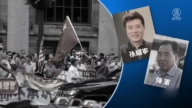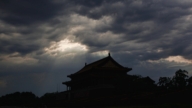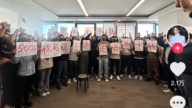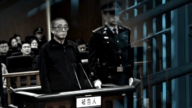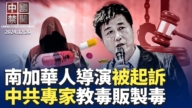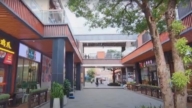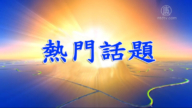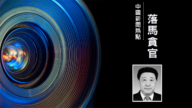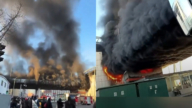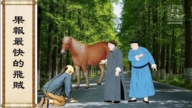【新唐人2014年12月03日讯】中共原新闻出版总署署长柳斌杰日前透露,由于新闻媒体发言随意,让管制严格的传统媒体影响力减弱,全国人大正在研究对新闻传播立法,让媒体可以依法判断自己的行为。不过有分析指出,中共这一做法是因为面对的压力有所加大,但在现有政治体制下,即使立了法,也是一个任由中共解释,受中共操控的法律,无法真正依法行事。
11月26号,中共全国人大常委、原新闻出版总署署长柳斌杰表示,新媒体发言随意,吸引眼球﹔传统媒体管制严格,面容呆板,一样传播两个尺度,让传统媒体常常感叹“带着镣铐跳舞”、环境不公,而传播立法的出台,可以终结这一局面。
柳斌杰还说,新闻传播也要有法治思维,否则,底线不清、边界不明,媒体不好把握。传播立法能使媒体获得自主权,媒体可依法行使法律赋予的职权,依法判断自己的行为。
原陕西电视台记者马晓明:“现在社会上媒体人、新闻界,在新闻立法呼声很高,已经呼吁了很多年了,为了应对这种呼声,再一个,中共自己也说要依法治国,新闻不立法,无法可依,中共自己也感到社会压力比较重,总的来说,他们的意图就是为了应付社会的压力。”
英国广播公司《BBC》指出,早在20世纪80年代,《新闻法》就曾被提上中国立法议程,但1989年6月发生了天安门学生民主运动,新闻立法工作也因此停顿。
原河北人民广播电台编辑朱欣欣:“长期以来不搞新闻立法,就是它想给自己留一个掌控新闻界的一个空间,它立法以后,恐怕束手束脚。”
曾在中国政法大学任教的美国哈佛大学访问学者滕彪,向《自由亚洲电台》表示,关于新闻立法,大陆学界和知识界一直有两种不同的声音。一种认为应该立法,否则都是中宣部、新闻出版署等通过一些命令来规定;另一种声音认为不应该立法,因为在政治体制不变的情况下,如果立法,一定是限制新闻自由、对媒体记者约束很大的一个法律。
滕彪表示自己比较认同“立法可能会更大程度限制中国新闻自由”这一观点。
马晓明:“一党独裁的环境如果不打破的话,不要说是不可能,不会立新闻法,就是立了新闻法,也是一个管控,可以任由他们解释的一种法。这个裁决、执行的权力,它是受到党的控制的,它还是不能够依法行事的。”
朱欣欣:“从根本上,从大的方面来讲,它肯定还是受党权的控制,从常规的情况下来讲,它可能要促进法规化、法制化,专制制度的法制化,使控制更加系统严密,更加规范。”
滕彪认为,新闻传播立法唯一积极的意义在于,当党政部门对媒体或新闻从业人员的要求和处分,明显违背新闻传播法时,媒体或新闻从业人员可以依法抗辩。不过,他也认为,在目前的法律体制下,媒体或记者很难有效抗辩,更难以改变当局的决定。
滕彪说,中共在1990年推出的“集会游行示威法”,就是一个限制、禁止集会游行示威的法律。这是一个前车之鉴。
原河北人民广播电台编辑朱欣欣对于这次的新闻传播立法,表示不乐观。
朱欣欣:“现在只能希望先一步步来吧,在一些小的事情上,枝节的事情上,有法可依,毕竟你没有法律,各级的官员随意的用权力来指挥来控制要好一些,但从根本上来讲,我对这个新的立法不抱乐观。”
据了解,中共今年出台了一系列关于新闻和传媒机构的法规条文。6月18号,中共广电总局下发通报,禁止新闻记者和记者站私自开展批评报导。
10月29号,中共国家互联网信息办公室和广电总局联合下发通知,要求在大陆新闻网站推行“新闻记者证”制度,把所有新闻网站采编人员纳入统一管理。
“六四天网”负责人黄琦曾向《新唐人》表示,中共当局采取这一系列方法,主要是为了遏阻网路舆论的传播,以及民众对贪污、腐败、征地、拆迁等问题的投诉。
采访/李韵 编辑/陈洁 后制/钟元
The CCP Proposes Legislation To Regulate News Media Due To High Pressure
Mr. Liu Bin, former Director of Press and Publication
of the Chinese Communist Party (CCP), has revealed that
the effects of tightly controlling the traditional media
have weakened.
Modern media allows netizens to speak freely,
thus the National People’s Congress (NPC) is preparing
for legislation on the news media, so that the media
can judge their own behaviour according to the law.
Analysts pointed out that this approach was due to the CCP
facing increasing pressure.
But under the current political system, even if the legislation
passes, the law is still discretionarily explained
and manipulated by the CCP, and it is impossible
to really rule by the law.
On Nov. 26, Mr. Liu Bin, a NPC Standing Committee member
and former Director of Press and Publication, said that
the new media allows free speech to attract attention,
whereas traditional media is strictly controlled.
Both styles spread in the same market but
with two different censorship degrees.
This makes traditional media often sigh and feel
as if they are “dancing with shackles."
This is an unfair censorship environment.
The legislation on the spread of the media
will end this situation.
Mr. Liu said that the news media should rule by law
otherwise the unclear censorship bottom line
and the unknown boundary make the media difficult
to control themselves.
The media legislation will enable media to have
decision-making power, and the media can exercise power
authorised by law, and judge their actions according
to the law.
Mr. Ma Xiaoming, former Shaanxi TV reporter: “At present,
media professionals and the press circles have loudly called
for media legislation for many years, so the CCP is replying
to such an appeal.
On the other hand, the CCP has also vowed
to execute the rule by law.
If the news media is not legislated, then there is no law
to rule, and the CCP feels relatively heavy social pressure.
In general, their intention is to cope with
the societal pressures."
British Broadcasting Corporation (BBC) pointed out that
as early as the 1980s, the Press Act would have been put
on the Chinese legislative agenda, but the Tiananmen
Student Democracy Movement took place in June 1989.
Therefore the press legislation halted.
Former Editor of Hebei Province People’s Radio Zhu Xinxin:
“The press legislation has long not been carried out so that
the CCP could have room to control the press circles.
Their legislation might be binding their own hands and feet."
Mr. Teng Biao, a visiting scholar of Harvard University who
used to teach at China University of Political Science, told
Radio Free Asia that regarding press legislation, mainland
academics and intellectuals have two differing voices.
One voice believes there should be legislation,
otherwise the Central Propaganda Department
and Press and Publication Administration issue
some provisions to regulate the field.
The other voice thinks there should not be legislature
because under the current unchanged political system,
if legislation passes, then it will restrict press freedom
and be a law largely constraining the media reporters.
Teng Biao said he more agree the saying “legislation may
lead to greater restrictions on Chinese press freedom."
Ma Xiaoming: “If the one-party dictatorship environment
cannot be broken, please do not say it is impossible
to or does not develop the press legislation.
Even if the legislation passes, it is still censorship and control,
and the law can be discretionarily explained by them.
Such an adjudication and execution right is controlled
by the CCP, and this is still not able to act according to law."
Zhu Xinxin: “Fundamentally, from the macro level,
it is certainly still under the control of the CCP.
From the normal situation, this may promote legislation
and legalization, and this is a legalization for autocracy.
So the censorship becomes a more rigorous control system,
and it is more standardized."
Teng Biao believes that the only positive significance
of the legislation is that when the CCP and government
departments require punishment of media or journalists
who clearly violate the news media law, then the media
or journalists can defend themselves by the law.
However, he also believes that under the current legal
system, media or reporters have difficulty to effectively
defend themselves, and more difficulty changing
the decision of the authorities.
Teng Biao said that the CCP launched the Act on Assemblies,
Processions and Demonstrations in 1990.
It is a law restricting and prohibiting assembly,
procession and demonstrations.
This is a past lesson and warning.
Zhu Xinxin is not optimistic regarding
legislation on news media.
Zhu Xinxin: “The current situation can be only
to follow step by step.
On some small and trivial matters there are laws.
After all, if there is no law, the officials across all levels
use their powers to discretionarily command
and control the situation, this should be better.
But fundamentally, I am not optimistic
about such a new legislation."
It is understood that the CCP introduced a series of laws
and provisions on news and media agencies this year.
On June 18, the CCP State Administration of Press,
Publication, Radio, Film and Television of the PRC (SARFT)
issued a notification prohibiting news reporters
and correspondents from privately reporting with criticism.
On Oct. 29, the CCP Station Internet Information Office
and the SARFT jointly issued a notice requiring
the implementation of the “news correspondent certificate"
system in the news websites and uniform management
of all journalists and editorial staff of the news sites.
Tianwang head Huang Qi once told NTD that the series
of actions by Chinese authorities is mainly in order to curb
the spread public opinion via the internet regarding
public complaints of embezzlement, corruption,
land acquisition, demolition and other issues.
Interview/LiYun Edit/ChenJie Post-Production/ZhongYuan


